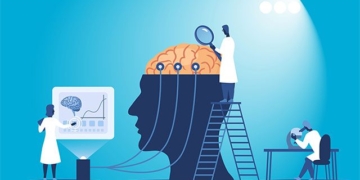There are many reasons why you might suddenly feel fatigued and low on energy. As autumn arrives, the rate of seasonal depression also increases, often accompanied by inexplicable mood swings, irritability, or increased drowsiness. However, a loss of energy can also be a symptom of an underlying health condition.
Reasons You Might Feel Tired Even If It’s Not Seasonal Depression
1. Are You Consuming Too Much Sugar?
Sweets seem to have a comforting effect, making you feel “happier and more energetic” as autumn arrives.
In reality, when you consume sugary foods or refined carbs (e.g., white bread, pasta, pastries), they usually cause a rapid spike in your blood sugar levels. This may lead to a feeling of energy and alertness right after eating. However, this energy boost does not last long and will quickly decline, leaving you feeling fatigued and irritable.
It’s essential that if you want to indulge in sweets, do so in moderation and balance your meals with fiber-rich carbohydrates, lean proteins, and healthy fats.

Consuming too much sugar adversely affects blood sugar levels. (Image: Internet).
2. Are You Exercising Enough?
It may sound contradictory, but not exercising enough can lead to increased fatigue. In other words, the more energy you burn through exercise, the more energy your body has to perform other daily activities.
Moreover, regular exercise also helps improve sleep quality, reduces insomnia symptoms, and enhances focus and alertness during the day for adults.
If your body has become lazier with outdoor activities in the crisp autumn weather, consider indoor or gym workouts. Choosing the right time to exercise outdoors is crucial to avoid sudden temperature changes, especially for older adults.
When feeling naturally fatigued, stand up and walk around for 5 minutes (preferably outdoors) to help increase your heart rate and boost your energy levels.
3. Skipping Breakfast
The autumn weather is perfect for sleeping in, and unfortunately, this habit can lead you to skip breakfast. Skipping breakfast contributes to your energy deficit in the morning. Furthermore, when your body is overly hungry in the morning, you’re more likely to make unhealthy choices, resulting in a quick drop in blood sugar by mid-afternoon. This cycle of energy highs and lows will leave you feeling even more fatigued.
It’s vital to provide your body with a good source of energy to kickstart the day after a night of fasting.
4. Sitting Too Much
According to Everyday Health, sitting for long periods is not only harmful to your health but also a way to “kill” your body’s energy. Instead, you should stand up and move around for a few minutes to allow blood to circulate more freely and increase the oxygen levels in your blood, which helps improve alertness, mood, and memory instead of fatigue.
5. Are You Drinking Too Much Caffeine?
Many people think that the more tired they feel, the more caffeine they should consume to perk up. However, while caffeine can quickly make you alert, it can also lead to increased fatigue afterward, especially if consumed in excess.
The result is that you feel more fatigued, irritable, and even less focused. Be cautious about how you consume caffeine, as increasing your intake can lead to caffeine dependence. Additionally, avoid consuming caffeine in the afternoon or evening if you don’t want to have trouble sleeping at night.

Too much caffeine can be addictive. (Image: Internet).
6. Dehydration
Drinking less water due to sweating less in autumn increases the risk of dehydration. Up to 62% of people may “inappropriately” respond to signals of hunger and thirst—in other words, you might be thirsty but still eat.
Even mild dehydration can negatively impact your energy levels, mood, and concentration. Aim to drink at least one glass of water every hour while at your desk and remember to drink more if you’re working hard or engaging in other activities that cause heavy sweating.
7. Allergies
Seasonal allergies are quite familiar to those who suffer from allergic rhinitis or hay fever, with typical symptoms including continuous sneezing, watery eyes, or nasal congestion. In addition to these typical symptoms, less recognized symptoms include fatigue and decreased energy.
The explanation is that your body is actively working to combat allergens, which requires additional energy.
Moreover, not only seasonal allergens like pollen, dust mites, and mold can cause fatigue, but allergy medications can also lead to this as a side effect. Depending on the generation of the medication, the level of fatigue may vary.

Common seasonal allergies come with symptoms like watery eyes and sneezing. (Image: Internet).
8. Thyroid Disease
The thyroid plays a crucial role in producing hormones that regulate how your body uses energy for normal functioning. When the thyroid does not produce enough of these hormones—known as hypothyroidism—it can disrupt or slow down many bodily functions. In other words, this deficiency can make you feel more fatigued.
9. Cancer
If you feel more fatigued than usual, the cause may be related to cancer—although this is relatively rare.
According to the American Cancer Society (ACS), cancer-related fatigue is extremely common, with at least 80% of people diagnosed with cancer experiencing this condition. This can be due to cancer cells attacking the body or the side effects of treatments such as chemotherapy or radiation therapy.
However, in general, if you feel naturally fatigued along with other issues like unexplained weight loss, changes in bodily condition such as breast changes, voice changes, or changes in skin or eye color, you should seek medical attention early to rule out any serious conditions.
10. Vitamin B12 Deficiency
Getting enough vitamin B12 in your daily diet is crucial for brain health, immune function, and your body’s metabolic processes.
As you age, your ability to absorb vitamin B12 decreases, and fatigue is one of the first signs of vitamin B12 deficiency. Some medications can also hinder the absorption of vitamin B12, such as those used for diabetes, irritable bowel syndrome, Crohn’s disease, and more.

Getting enough vitamin B12 in your daily diet is vital for brain health, immune function, and metabolic processes. (Image: Internet).
In addition to fatigue, those deficient in vitamin B12 may experience other symptoms, including tingling in the hands and feet, memory loss, dizziness, and vision impairment.
According to the National Institute of Mental Health (NIMH), depression can cause a range of symptoms, and decreased energy or fatigue is certainly among them.
Common signs of depression include:
- Feeling restless, anxious, or empty frequently
- Feeling pessimistic or hopeless
- Irritability
- Feelings of guilt, worthlessness, or helplessness
- Losing interest in previously enjoyed activities
- Feeling low energy, fatigued, or exhausted
- Speaking or moving more slowly
- Feeling unable to sit still
- Difficulty concentrating, memory issues, or making decisions
- Difficulty sleeping or sleeping too much
- Increased appetite and/or weight changes
- Thoughts of suicide or death
- Headaches, cramps, or unexplained digestive issues.
Note that not everyone with depression experiences all of the symptoms listed above.
11. When Should You See a Doctor if You Feel Naturally Tired?
If you occasionally feel tired, it may not be a cause for concern. However, if you experience chronic fatigue that affects your daily activities, it’s essential to see a doctor promptly.
Your doctor may recommend several tests, including a physical examination and blood tests, to accurately identify the underlying cause of your fatigue.




















































